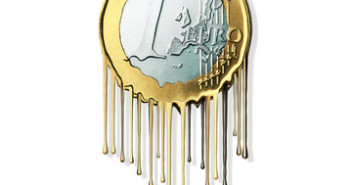ECB president Mario Draghi began accepting that low inflation is not solely related to temporary factors, but also to changes in expectations. He also hinted of imminent action regarding an ABS program (aka QE or printing euros). The current level of inflation, 0.4%, is too just too far from the ECB’s mandate, and improvement is out of sight.
The German 10 year bond year yield fell below 0.90% and other euro-zone countries are also experiencing ever lower yields. Does this reflect expectations for falling prices or is the market front running buys of bonds by the ECB?
It doesn’t really matter
The end result is bad for the euro and good for the euro-zone: governments can borrow money in perfect terms, interest rates are lower for everybody (such as the Euribor related to mortgages) and the lower value of the euro makes exports more competitive.
With imminent action from the ECB, as early as September, the big question is: what exactly will it deliver? Will the program be really impressive? Will it be effective?
Without a convincing move, the euro could bounce back and ruin the achievements seen so far.
Reasons to wait, just a bit
Draghi may wait with a declaration of QE to the next meeting: he might want to see have the Bundesbank fully on board, or at least reach a wider consensus. In addition, the TLTROs come into effect in September, and this could also be a reason to wait.
The end of QE in the US, due in October, could be another reason to wait, as this could have a positive effect on the dollar and push EUR/USD lower.
The markets could forgive Draghi and wait for another month or two, as long as he keeps pushing the envelope on expectations and as long as he doesn’t wait too long.
Related: Yellen provides no new message in Jackson Hole – USD stronger
